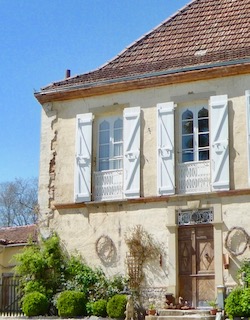The last five years have seen a gradual upward trend in the French property market following a very flat period for prices from 2012-2015. As usual, the market seems to track the economic and political situation in France, and both seem to approve of President Macron. Since he has been in power (he was elected in May 2017), the French economy has seen the fastest expansion for 52 years (according to the FT) and the property market has mirrored this with both sales and prices increasing.
The French economy was badly hit by Covid 19 like the rest of the world, but it also seems to have bounced back more quickly than most countries to the surprise even of the French finance minister, Bruno Le Maire, who is quoted as saying: “L’économie redémarre plus vite que prévu” (the economy has rebounded more quickly than predicted). France has among the best economic growth figures in the Eurozone with French economy growing by 6.8% in 2021 and it is forecast to continue grow by 4.2% in 2022.
This fast rebound might be because France was one of the first and most efficient countries to roll out massive financial support for families and businesses at the start of the Covid pandemic and this has continued right up to the beginning of this year. The result has been that economic output has been maintained throughout the pandemic and consumer spending also continued, hence France is seeing a much quicker recovery than most other countries.
France is also less affected by the economic global slow down because France exports less than other European countries (French exports contribute only 31% of French GDP while that figure is 48% for the rest of Europe) and inflation is rising more slowly than, for example, in the UK (although it is still rising; confirmed at 3.6% in February). In addition, France is less affected by the energy crisis because it generates a high percentage of its own electricity. In 2020, nuclear power made up the largest portion of electricity generation, at around 78% of France’s electricity while renewable sources (wind, solar and hydro-electric) accounted for 19.1% of energy consumption. France has the largest share of nuclear electricity in the world and is also among the world’s biggest net exporters of electricity. The country is increasingly investing in renewable energy and has set a target of 32% by 2030
How does all this impact on property prices?
According to the Notaires de France (Notaires.fr) the price of older houses in France continued an upward trajectory and rose by 9% in the third quarter of 2021. The average rise in prices for mainland France during 2021 was 6.8% for houses and in the 12 months to May 2021, there were 1,130,000 house sale transactions, the highest level since 2000. Which means that the French property market has experienced over 6 years of solid growth since early 2016.
This has been helped by the historically low interest rates on mortgages in France which has seen the number of mortgages approved increase by 5.3% in the year to August 2021. The forecast for French mortgage rates for 2022, shows that the underlying low interest rates will continue for the foreseeable future.
The property market in France tends to be more stable and consistent than in many other countries. However, a combination of factors over the last two years seems to have fundamentally shifted the normal patterns producing an increasing demand for older houses and a trend for rural properties. This has created a significant lack of supply in certain rural areas (those within an hour of a major urban centre). This combined with the fact that fewer new houses are being built, thanks to stricter planning and energy regulations, means that there is a dwindling supply of older properties. Agents are complaining that they have plenty of buyers but nothing to sell them which is creating a seller’s market. This in turn means that houses are still selling very quickly in 2022 just as they did in 2021 (a novelty for the French property market) and buyers are having to act quickly and pay the asking price to secure their preferred home, or they risk losing out. This in turn, is driving prices upwards.
I am seeing a continuing demand for more space and flexible, inter-generational living as well as for income generating properties. Remote working seems to have had a significant impact on the type of property most in demand, shifting from smaller, urban properties to larger and more rural houses, particularly if they offer flexible living accommodation, large gardens, pools, and office space. There is also more demand for properties with easy access to everyday services such as schools, local shops, and communities rather than properties that are very isolated.
There is no question that the French property market is having a moment, but it is a seller’s market which can mean plenty of frustration for buyers. There is not much out there and anything good is getting snapped up almost as soon as it is advertised. So be prepared to act quickly, have your finances in place and maybe think of employing an expert on the ground who has the local contacts and the ears of the agents to ensure you don’t miss out on your dream property when it does come onto the market.
If you would like some help or advice to find the perfect French property, please get in touch: nadia@foothillsoffrance.com






You must be logged in to post a comment.